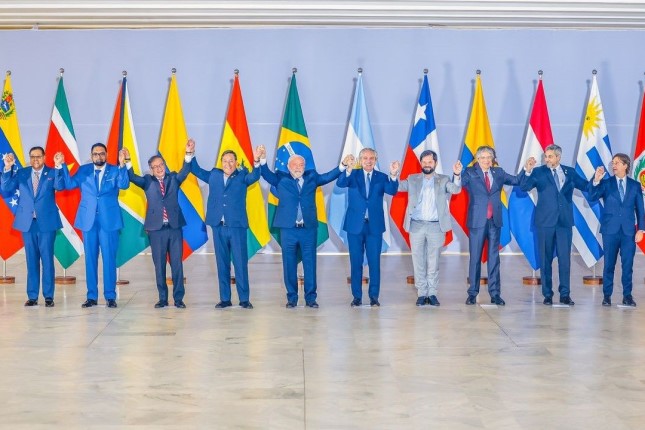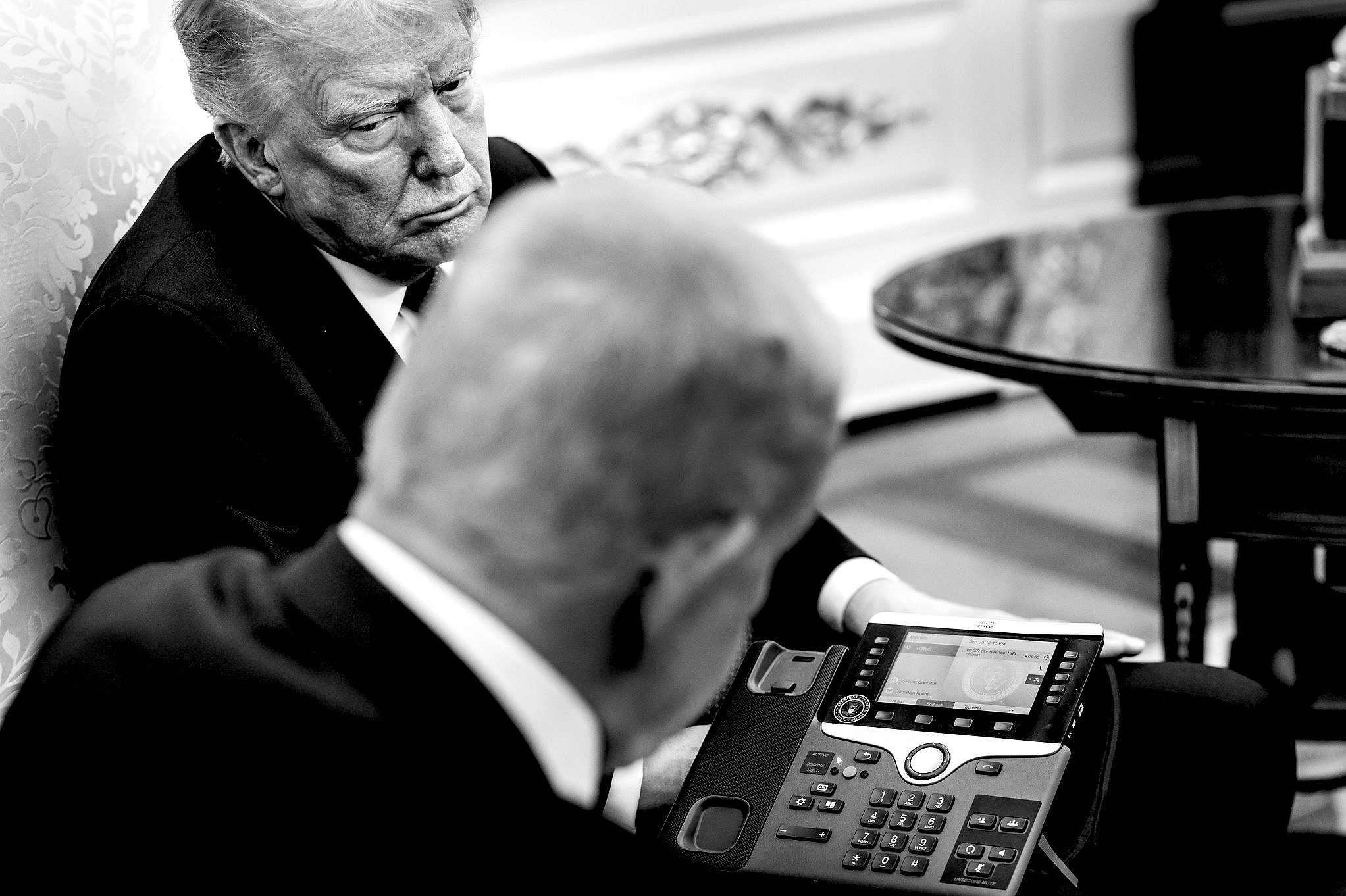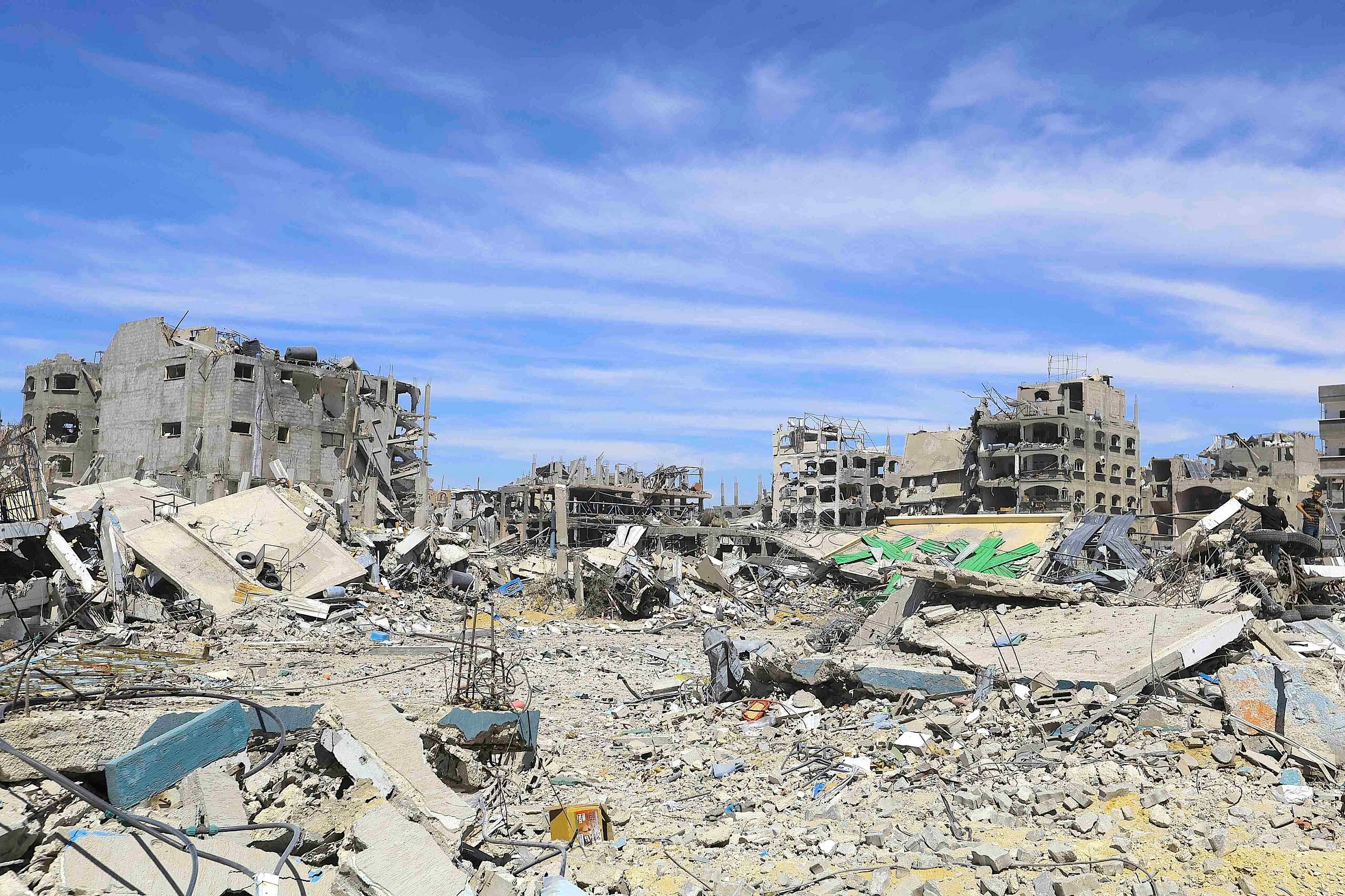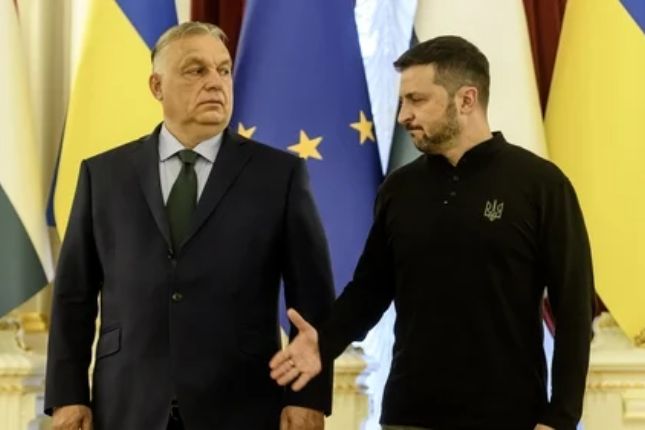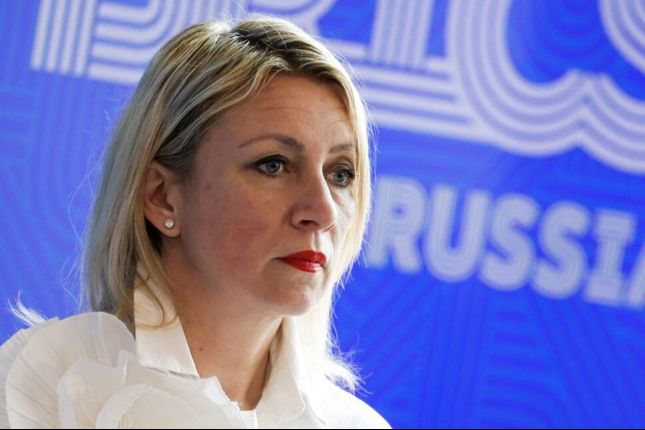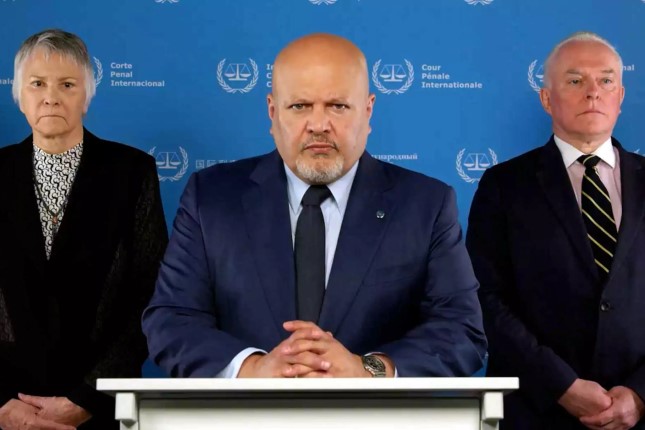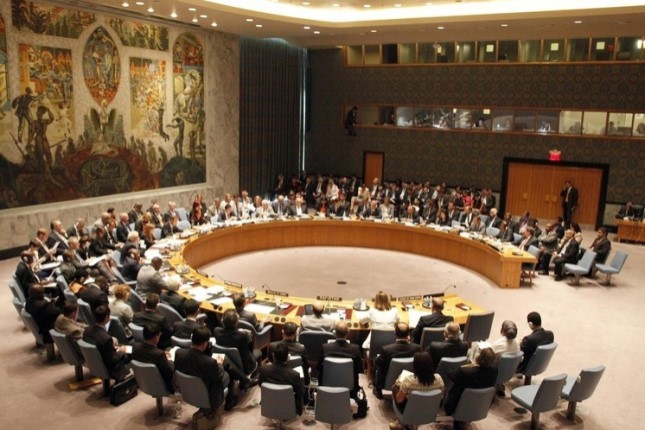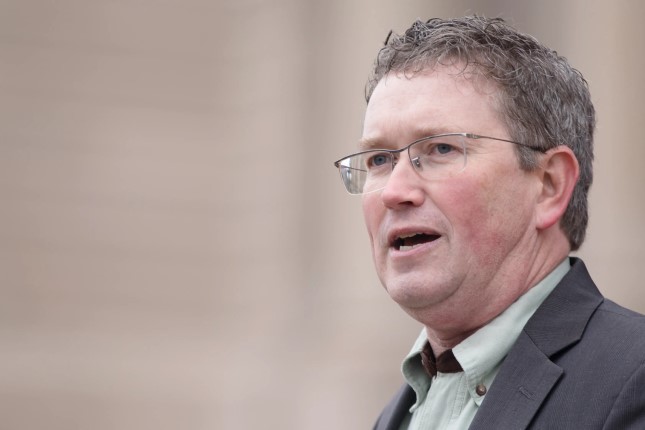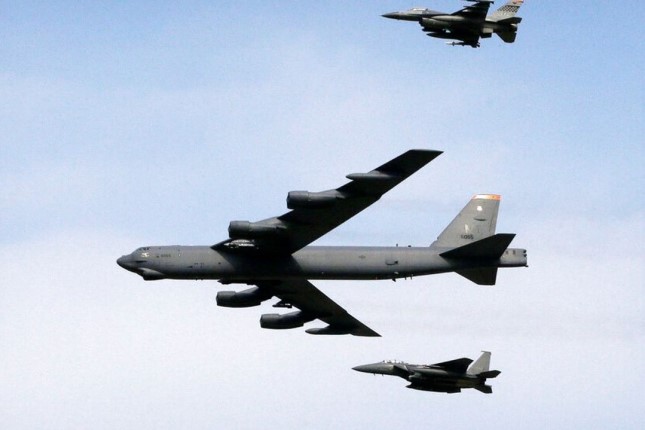He is advancing the slogan that “Brazil has returned” to the international arena after years of isolation under former president Jair Bolsonaro.
Through the ten international visits that Lula has made so far, including to the United States, China and, more recently, to France, the Brazilian leader has sought to promote the narrative that the current geopolitical hegemony of the US and Europe must be overcome by a “multipolar world.”
As part of this campaign, Lula convened on May 30 a summit in Brasília with presidents and officials from the 12 South American countries, evoking the revival of the Union of South American Nations (UNASUR). Created in 2008, the UNASUR marked the original “Pink Tide” of bourgeois nationalist governments in Latin America that posed as left-wing. Dismantled in the second half of the past decade, after several right-wing governments came to power in the region, the Union has regained members after “Pink Tide” representatives were elected in countries such as Argentina and Colombia.
The economic, social and political conditions for this attempt to reestablish UNASUR, however, are very different from those of 15 years ago. The early years of the 21st century in Latin America were marked by the commodities boom driven by China’s growth, leading the Asian country to overtake the US and become the leading trading partner of the largest economies in the region by 2009.
Today, an ongoing COVID-19 pandemic has further intensified acute social inequality in South America. The US-NATO war against Russia in Ukraine has also placed increasing economic, political and social strains on the entire region. While virtually all South American presidents face explosive domestic crises, including tensions with the military, they face the challenge of maneuvering between their trade relations with China and, to a lesser degree, Russia, and the growing pressures of imperialism.
In his opening speech to the South American summit, Lula declared: “I have the firm conviction that we need to revive our commitment to South American integration.” The Brazilian President recalled other regional integration initiatives in the 20th century, such as Mercosur, among Argentina, Brazil, Uruguay, and Paraguay. He stressed, however, that with UNASUR, “we have advanced in the institutionalization of our relationship.”
Besides encouraging trade among the region’s countries, Lula stressed UNASUR’s role in articulating the interests of “global South” with “meetings with the Arab and African countries.” According to him, this stance would contrast with today’s “global governance forums,” such as the World Trade Organization, which benefit the rich countries.
The Brazilian president exalted South America’s economic potential, with its 4-trillion-dollar GDP and its 450 million inhabitants who constitute an important consumer market. In terms of natural resources, he claimed that the continent has the “largest and most varied energy potential in the world,” large food production, a third of the world’s freshwater reserves, rich biodiversity and critical minerals “essential for the latest generation industry.”
Lula described these resources as “solid assets” in the context of “today’s systemic threats,” such as the climate crisis, and argued that South America can assume a leading role in the “world in transition.” To achieve this, he claimed, “It is not necessary to start over from scratch. UNASUR is a collective heritage.”
Despite of Lula’s boasting, the South American summit held by the PT has shown that establishing regional unity will prove no simple task. Any reference to UNASUR in the meeting’s final resolution “had to be removed so that it could be approved,” Folha de São Paulo reported. The document ended up presenting vague assertions about the importance of South American integration for the “construction of a peaceful world,” along with other generalities.
An open stance against UNASUR came both from the right-wing president of Uruguay, Luis Lacalle Pou, and the pseudo-left president of Chile, Gabriel Boric. Lacalle Pou said: “enough of institutions,” and rejected “ideological clubs that only live as long as there is coincidence of ideologies.” Chilean Chancellor Alberto Van Klaveren declared a preference for “cooperation on specific issues” over “emphasis on formal institutions” such as UNASUR.
This divergence reflects the existence of major international questions standing in the way of the relations among the South American regimes, that were also expressed in the polemics regarding the participation of Venezuelan President Nicolás Maduro in the summit. The day before its opening, Lula held a bilateral meeting with Maduro. This marked the official re-establishment of diplomatic relations between the two countries, broken by Bolsonaro when he recognized Washington’s puppet, Juan Guaidó, as Venezuela’s official leader.
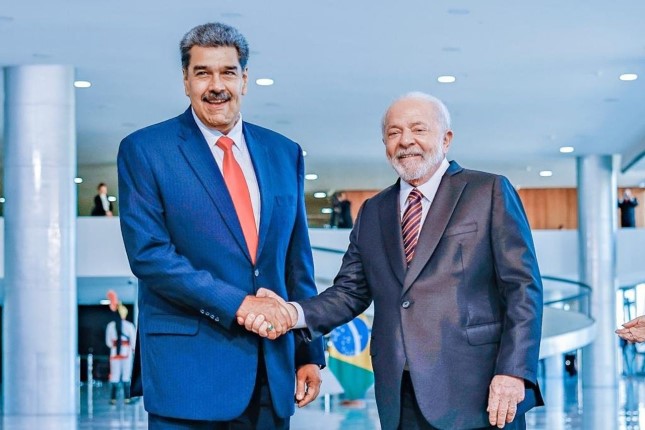
Maduro and Lula at the May 29 bilateral meeting. Photo: Twitter / Ricardo Stukert.
Boric and Lacalle Pou openly criticized Lula for calling the accusations of “anti-democracy and authoritarianism” on the part of the Maduro regime a “narrative” directed against Venezuela. Both the Chilean and Uruguayan presidents have expressed full support for the NATO-led war against Moscow. For his part, Maduro, even before the war in Ukraine, had declared “full support [for Russia] to dissipate the NATO threats.”
In a press conference, Lula called the meeting with Maduro a “historic moment” that will increase the integration of Brazil and Venezuela. Maduro, in turn, emphasized Lula’s criticism of US sanctions against Venezuela, saying, “The world that is being born should not be marked by sanctions and pressure from the dollar.” To build this “new, multipolar world,” he expressed the desire that Venezuela join BRICS. Lula said he is “favorable.”
The South American summit in Brazil was held amid the annual meeting of the New Development Bank (NDB), known as the BRICS Bank, and the preparations for the bloc’s annual summit to be held in August in South Africa. The central themes of these meetings were the possibility of creating a single currency for the bloc, expanding trade between countries in alternative currencies to the dollar, and increasing the membership of the NDB and BRICS.
In addition to Venezuela, more than 20 other countries have already expressed interested in joining BRICS, such as Argentina, Algeria, Turkey, Syria and Iran; and the NDB has already begun its expansion with Uruguay, the United Arab Emirates, Bangladesh, and Egypt joining in 2021.
An article in the Chinese Global Times about the BRICS foreign ministers’ meeting explained the bloc’s “attractiveness” by blaming “the US’ increased abuse of its dollar hegemony at the expense of many developing nations,” adding that its “sanctions on other countries have also caused massive damage to many developing countries.”
In another article, the Global Times charged that the US “has long treated Latin America as its ‘backyard,’ and has been actively trying to sabotage normal, win-win cooperation between China and Latin American countries.” However, it continued, “economic hardship due in no small part to the toxic policies of the US” has led Latin American countries “to expand cooperation with China.” This includes Honduras recently joining the Belt and Road Initiative, the billion-dollar deals Lula struck in early April on his visit to China, and agreements with Argentina on lithium mining to expand China’s electric vehicle production.
US concern about the Chinese influence in Latin America has been vocalized in recent months by the head of the US Southern Command, Gen. Laura Richardson. In an interview with BBC Brasil in late May, she said, “The Chinese are our main competitors in the region.” Richardson said she was mainly concerned by the “dual (civilian and military) use” of Chinese structures such as ports, 5G telecom networks, and the space base in Argentina, as well as what she called China’s “trap loans” that have already led 21 of the 31 countries in Latin America to join the Belt and Road Initiative.
As the growing US escalation of the war in Ukraine and the increasing provocations against China over Taiwan have shown, Washington will not peacefully accept China’s increasing its influence in the Latin American region.
As David North declared in his speech at the World Socialist Web Site May Day rally, the realization of a “multi-polar” order “is not a realistic prospect.” North continued: “The United States will oppose with all the means at its disposal efforts to block its drive for ‘unipolar’ hegemony. Thus, the utopian striving to replace a ‘unipolar’ with a ‘multi-polar’ world leads, by its own twisted logic, to World War III and the destruction of the planet.”
Photo: South American Presidents and officials during a meeting in Brasilia on May 30 © Ricardo Stukert/Presidência da República.
Source: World Socialist Web Site.
